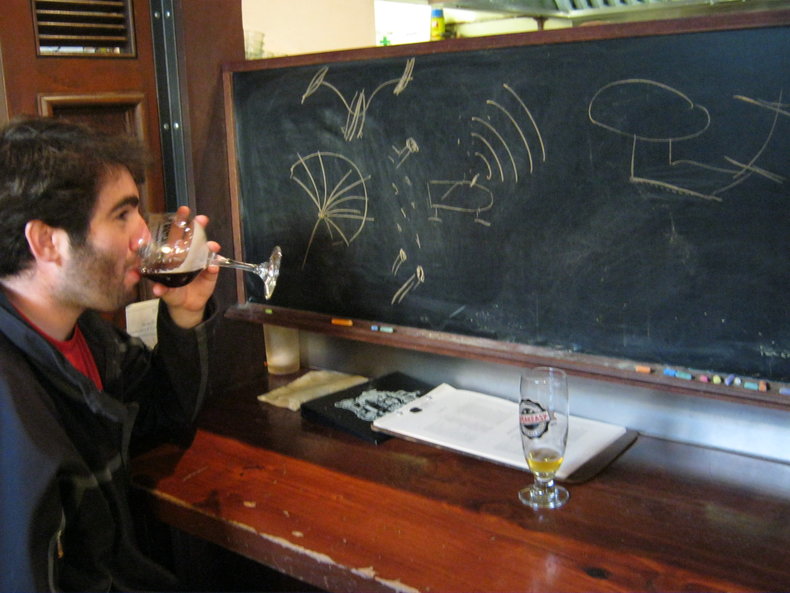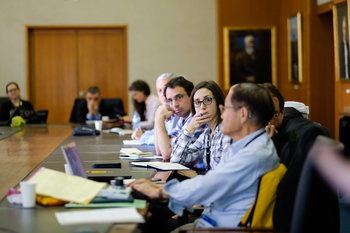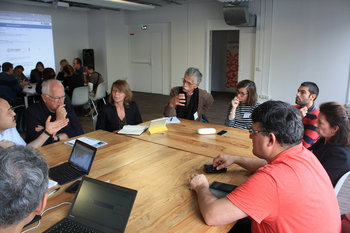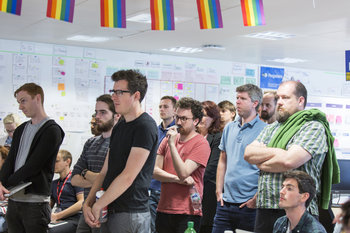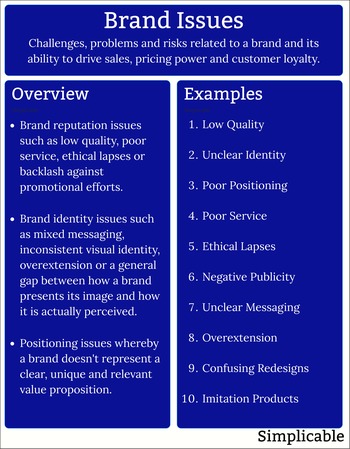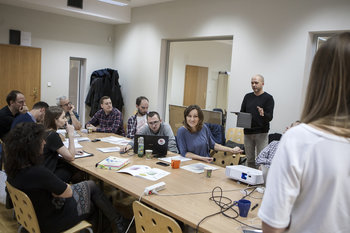|
| |
The Kobayashi Maru is a fictional no-win situation from the science fiction franchise Star Trek that is used in the series as a training exercise. By definition, no-win situations always result in negative outcomes. Nevertheless, strategy and execution may be able to minimize losses. The Kobayashi Maru is used to test strategic abilities in no-win situations and other factors such as stress handling and character.
OutlineThe Kobayashi Maru is a disabled manned spacecraft that has drifted into the territory of the Klingons, a powerful extraterrestrial civilization. Any attempt to enter Klingon territory to rescue the ship will result in an interstellar incident such as an large scale war. A Starfleet ship arrives and the captain must decide how to handle the situation. The simulation is rigged so that rescue always fails.
Value to Game TheoryThe Kobayashi Maru appears in film and fiction dozens of times, each with an interesting attempt to solve the problem. In many cases, characters taking the test are able to detect that the situation is rigged to be no-win. In such cases, characters may attempt to confuse or hack the simulator by creating logical paradoxes and other situations that may break the test. |
Type | | Definition | A simulation of a no-win situation for the purposes of training and evaluation. | Related Concepts | |
Thinking
This is the complete list of articles we have written about thinking.
If you enjoyed this page, please consider bookmarking Simplicable.
An extensive list of business strategies.
A reasonably comprehensive guide to strategy.
The difference between a baseline and a benchmark.
A definition of strategy vs tactics with two examples.
A few sources of competitive advantage for businesses.
A list of macro environment components.
The difference between competitive advantage and distinctive capability.
An overview of a common business strategy.
A definition of restructuring with examples.
An overview of problem solving with examples.
A list of thinking approaches and types.
A definition of workaround with examples.
A list of common creative thinking techniques.
A list of common types of problems.
The definition of analysis paralysis with examples.
The definition of the arrow of time with examples.
An overview of common business problems.
The definition of decision framing with examples.
The common types of research.
TrendingThe most popular articles on Simplicable in the past day.
Recent posts or updates on Simplicable.
Site Map
© 2010-2023 Simplicable. All Rights Reserved. Reproduction of materials found on this site, in any form, without explicit permission is prohibited.
View credits & copyrights or citation information for this page.
|
